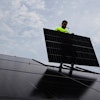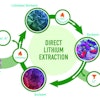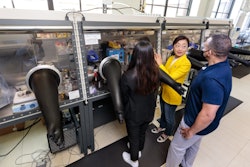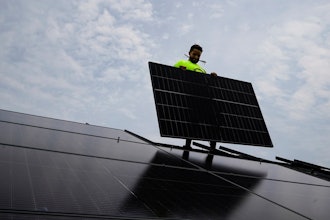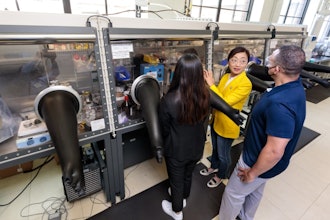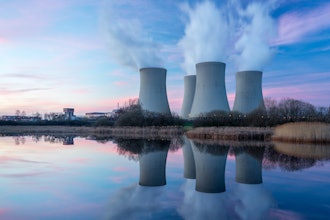BUENOS AIRES, Argentina (AP) -- Argentina's state-controlled YPF oil company has persuaded Chevron Corp. to sign a long-sought deal to invest $1.24 billion in developing the South American country's shale oil deposits.
The joint venture adds up to $1.5 billion overall, the first major foreign oil investment in Argentina since President Cristina Fernandez seized control of YPF from Spain's Grupo Repsol last year.
YPF CEO Miguel Galuccio and Chevron CEO John Watson presented it Tuesday night to Fernandez, who issued two decrees this week granting special privileges to any oil company investing more than a billion dollars in new shale ventures. After five years, such companies will be able to export up to 20 percent of their crude and natural gas without paying taxes, and also be exempt from the currency controls that have scared away many other foreign investors.
The YPF-Chevron venture will start with a $300 million pilot hydraulic fracturing project involving more than 100 wells in an area known as the "Enrique Mosconi Cluster," part of the Vaca Muerta (Dead Cow) deposit in Neuquen province, where YPF says 15 teams are already extracting more than 10,000 barrels a day.
In a later stage of the project, YPF expects to develop more than 1,500 wells and by the year 2017 produce 50 million barrels of oil and 3 million cubic meters of natural gas each day, making it the most productive strike in Argentina, YPF said.
"Vaca Muerta is a world-class share and fits perfectly within our solid portfolio of non-conventional resources," Watson said. "It's consistent with our strategic objective of entering into new and attractive areas early in the process."
Galuccio said the deal could change Argentina's energy future, and is a show of confidence by a major international company.
Argentina has the world's third-largest deposits of shale oil and gas, ripe for development, but no other major oil company has made such a commitment since Repsol threatened to sue Chevron and any other company that works with YPF to develop the strikes that were discovered back when Repsol had a controlling stake in the Argentine oil company. Repsol is demanding that Argentina pay more than $10 billion for its expropriated shares.
After being named by Fernandez to lead YPF, Galuccio last year announced an ambitious five-year plan to attract $37 billion in mostly foreign investment to develop the shale reserves, and spent much of 2012 courting major oil companies around the world, to no avail. Efforts to raise money by issuing peso-denominated bonds locally in Argentina have fallen far short of what's needed to exploit these deposits.
Argentina's history of expropriations and refusal to pay all its debts left over from its catastrophic default a decade ago has left it with few alternatives when it comes to raising money. Companies also have been scared away by the government's interventionist energy policies, imposed through a series of seemingly impromptu presidential decrees that created a commission of political appointees to set prices and dictate terms for oil ventures. Foreign investors also are required to keep their profits inside Argentina in order to foment domestic manufacturing, and exports of minerals, oil, gas and other commodities are tightly controlled and taxed.
Economist Daniel Montamat, who was YPF's president in the 1980s and Argentina's energy secretary in the 1990s, told The Associated Press on Tuesday that the decrees Fernandez announced this week promising to eliminate taxes and currency controls under certain conditions after five years to billion-dollar shale investors show some signs of flexibility, "but it won't have very good results, because the short-term thinking and discretionary manner of this government will be more important to those who make investment decisions."
The decrees Fernandez made in the name of "energy sovereignty" drew protests outside YPF's headquarters Tuesday by about 600 leftist activists, who accused Fernandez of giving favored status to a U.S. oil company with a long history of exploiting third-world resources.
"We want them to show us the environmental impact studies for this non-conventional exploitation in the region and to explain why they made deals with companies like Chevron behind our backs," said Lefxaru Nahuel, a spokesman for the Mapuche Confederation of Neuquen.
YPF countered that its wells are drilled on government-owned land, not Mapuche territory, and are being developed with the highest environmental standards, together with a remediation plan that was agreed to during a public process attended by other local Indian leaders not involved in the protest.
